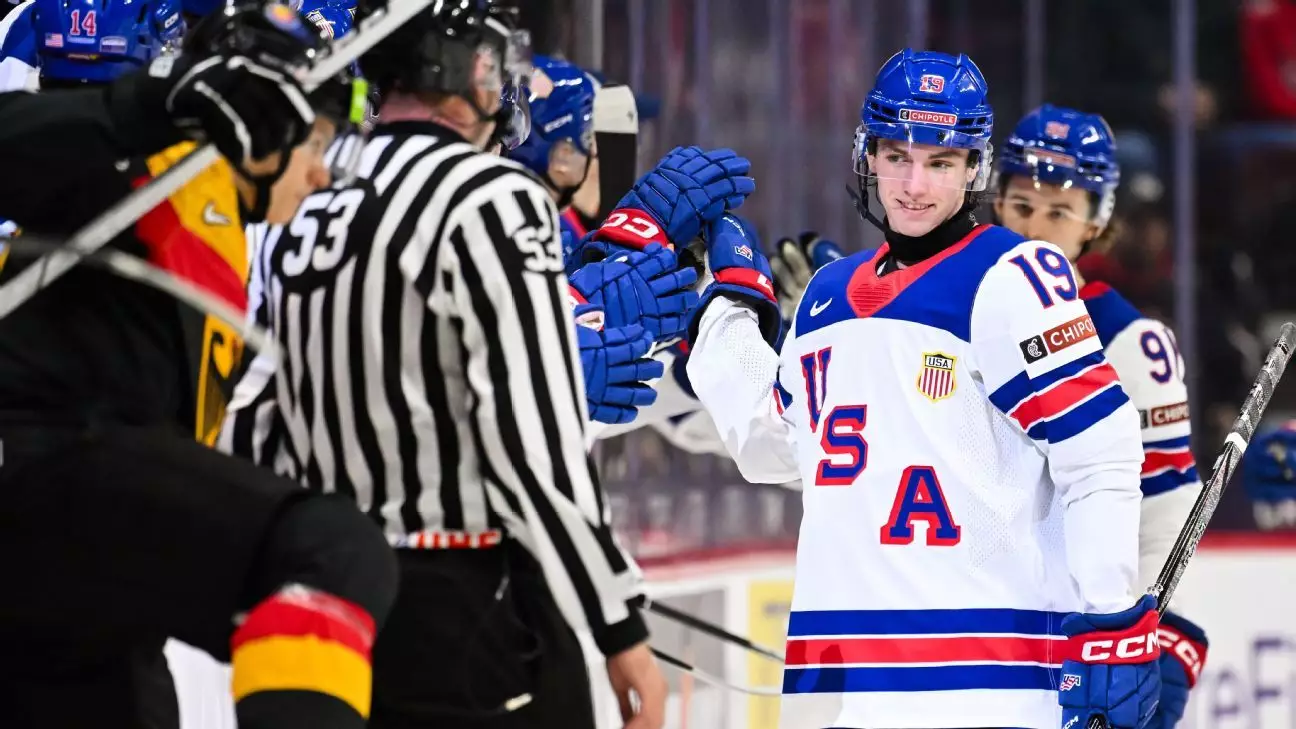At the IIHF World Junior Championships, excitement fills the air as the world’s best under-20 hockey players compete fiercely, representing their nations in pursuit of glory. However, beyond the ice battles for the coveted gold medal, there’s a less tangible yet equally captivating tradition that has garnered attention in recent years—the selection of a team’s goal celebration song. This quirky ritual reflects both the spirit of the tournament and the cultural vibes of the teams, as fans eagerly await to see which tune will become the anthem of celebration and pride.
The significance of a goal song transcends mere audio accompaniment; it serves as an emotional backdrop for moments of victory and collective joy. The process of choosing the right song often generates speculation and debate among fans, showcasing the cultural importance placed on this aspect of the tournament. This year, the choice of “Live is Life” by Opus as the goal song for the 2025 World Juniors sparked mixed reactions, particularly among Canadian fans yearning for the energy brought by previous selections like DJ Kool’s “Let Me Clear My Throat” or Blur’s iconic “Song 2.”
Amidst the analysis of various teams’ soundtracks, Team USA made a notable return to classic rock by opting for Lynyrd Skynyrd’s timeless anthem “Free Bird.” This choice not only resonates with older generations but also serves as an unexpected twist for younger audiences. The decision showcases the evolution of music preferences within the team and a desire to connect with timeless hits while still engaging a new fan base. The selection process, as revealed by University of Denver defenseman Zeev Buium, was a collaborative effort that took shape during casual moments on the team bus, emphasizing the camaraderie and shared interests among the players.
Buium, who has seen considerable brightness in his hockey career after being selected 12th overall by the Minnesota Wild, described the selection process as organic. The decision emerged from genuine enthusiasm, especially from goalie Jacob Fowler, who championed the classic tune. Such moments demonstrate how shared musical experiences can foster unity within a team, even within the competitive realm of international hockey.
The meticulous deliberation didn’t stop at merely selecting a beloved classic; the team had to agree on which part of the lengthy nine-minute track would amplify their victory cheers. The choice to start the celebratory clip at the 4:45 mark, just as the electric guitar riffs take off, speaks to the players’ strategic approach to fan engagement. As Buium accurately noted, the initial segments of “Free Bird” are low-key, hence their focus on the part that resonates with high-energy moments, turning goal celebrations into electrifying experiences for both players and fans alike.
After their triumphant opening game against Germany, where the tune was played after each of their ten goals, the response to “Free Bird” echoed positively throughout the arena. Defenseman Cole Hutson highlighted the catchy nature of the song, admitting it empowers players to sing along, transforming the atmosphere after each score into something memorable. This kind of infectious energy is integral to building a vibrant tournament environment, with fans rallying behind their teams not just through cheers but through shared musical experiences.
As Team USA advances in the tournament, the anticipation grows for how often “Free Bird” will resonate through arenas across the event. With the championship game on the horizon, the truth remains that memorable moments thrive on the fusion of sporting prowess and passionate enthusiasm. If USA continues its winning streak, “Free Bird” might just become synonymous with their championship aspirations.
The emphasis on selecting the perfect goal song symbolizes a broader narrative in sports—connecting players, fans, and culture in meaningful ways. As the World Juniors continue, it’s clear that music isn’t merely a background score; it’s a vital component of the game-day experience that binds fans and athletes in a shared narrative of aspiration, celebration, and, ultimately, victory.

